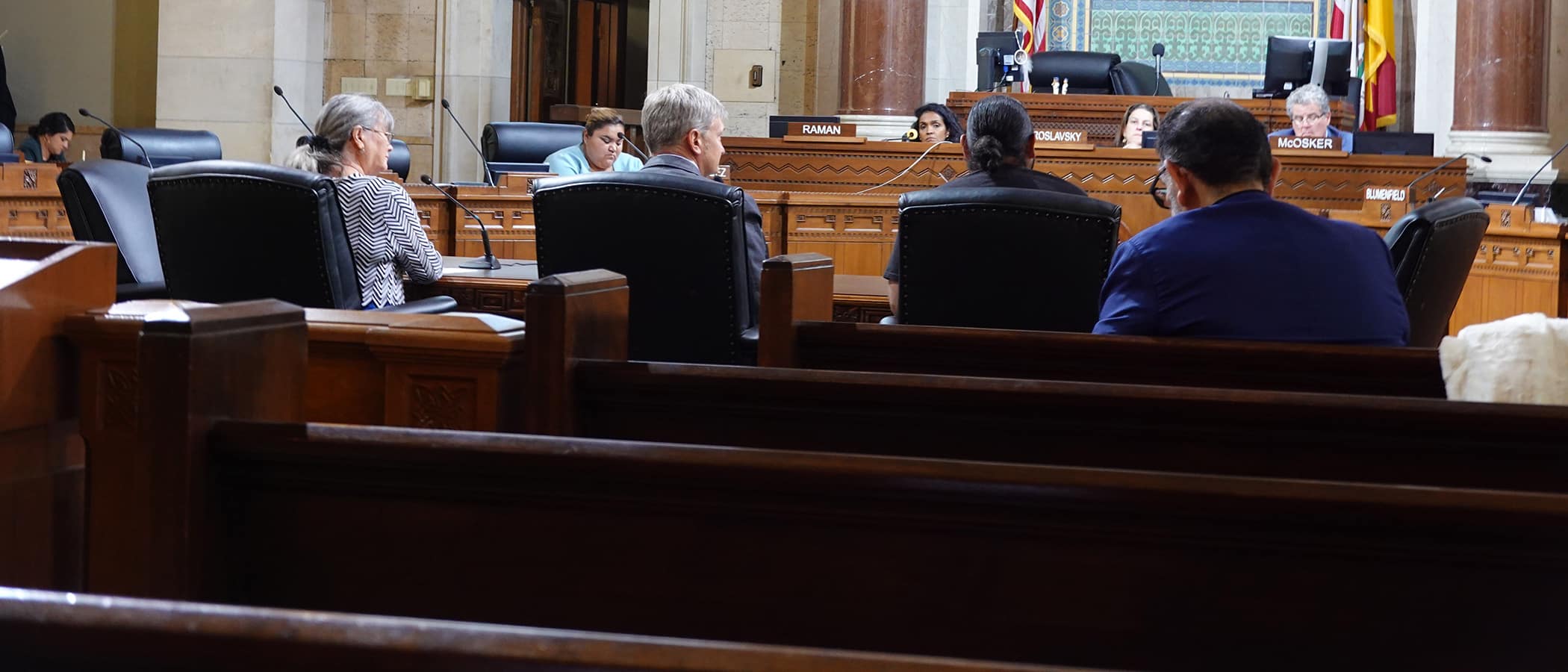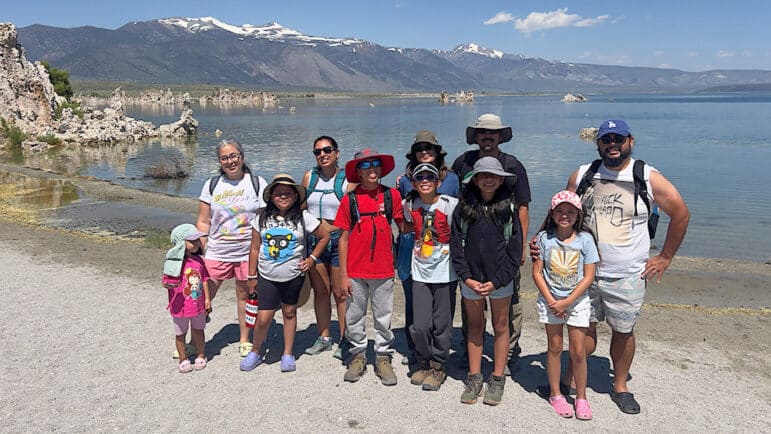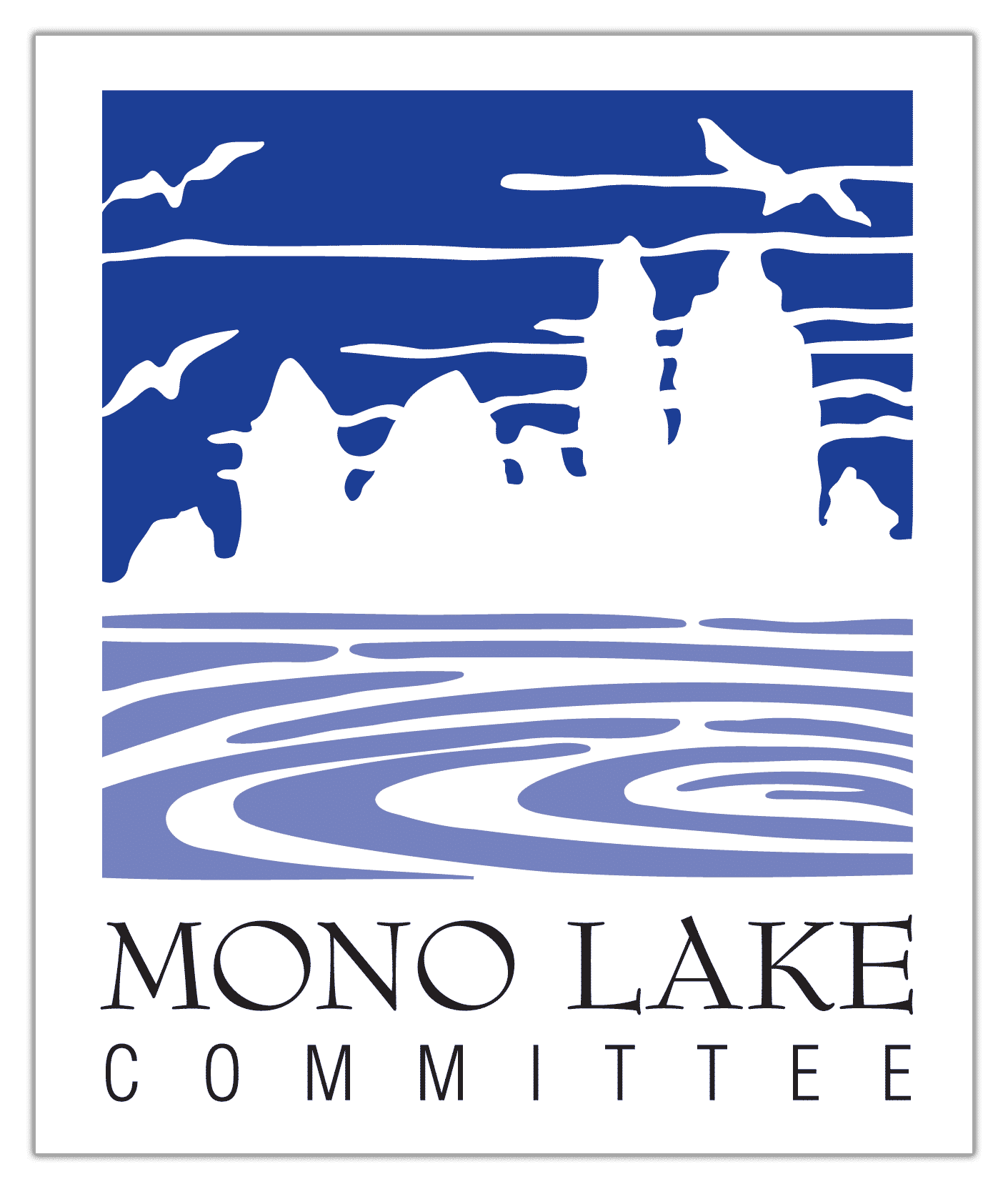
After digging out from under the exceptionally snowy winter, Mono Lake Committee staff were exceptionally curious—how much would Mono Lake rise this year, and will the rise stick this time?
As it turns out, many people are wondering the same thing. It wasn’t that long ago that a superlative winter catapulted the lake level upward in 2017, only to be followed by the need for emergency action in 2022 on the lake’s behalf after years of continued Los Angeles Department of Water & Power (DWP) diversions and drought.
Even those who aren’t tracking the lake level closely have seen enough lake rises and falls to understand that this pattern will continue unless the California State Water Resources Control Board steps in and holds a hearing to adjust stream diversion rules. The 1994 mandate to raise the lake called for a hearing if the Public Trust lake level wasn’t reached by 2014. A reasonable extension, to 2020, has also passed, and many are chiming in on a familiar refrain: When is the State Water Board going to hold the Mono Lake hearing?
Chorus of concern
In February the State Water Board held a pivotal workshop to investigate the status of Mono Lake and plan next steps. The five-hour workshop, which was attended by 365 people and solicited 3,000 public comment letters—resonated strongly with the Board.
As the winter snow and rain kept coming, the pressure for locking in lake level gains and achieving the mandated healthy lake level only got stronger. “There are not many big water users who have given up water for the environment. This may be an opportunity for Los Angeles to take credit for such a decision,” former State Water Board member Felicia Marcus said in the LA Times in February.
DWP’s presentation at the workshop dashed hopes that it might, in the face of over-full reservoirs, opt out of diversions this year. “If DWP won’t voluntarily cooperate in finding a way to protect Mono Lake, then the State Water Board needs to step up and save Mono Lake—again,” wrote Martha Davis, Executive Director of the Mono Lake Committee from 1984 to 1996, in CalMatters.
Los Angeles chimes in
Ruth Galanter, LA City Councilmember from 1987 to 2003, reminded Angelenos of the commitment the city made to protect Mono Lake: “What kind of a city are we if we cannot keep our commitments and care for the environment?” she asked in an LA Times letter to the editor in February.
In April, leaders of Los Angeles community-based organizations, including Communities for a Better Environment, East Yard Communities for Environmental Justice, and Pacoima Beautiful met with City Councilmembers’ staff. “It was really powerful,” said Outdoor Education Center Manager Santiago Escruceria. “The community group leaders engaged the City Council staff by telling their stories of the connection to Mono Lake and why Angelenos’ sustainable water use is deeply important to them. If Councilmembers didn’t know about Mono Lake before, they do now.”

In an LA Times op-ed, LA Waterkeeper Executive Director Bruce Reznik wrote, “Los Angeles has a once-in-a-lifetime opportunity to restore one of California’s ecological treasures and begin to reverse a century-old habit of relying on water from afar to quench our thirst.”
In July Mono Lake rose 1.26 feet, beating the previous (1967) record by about a quarter of a foot. California Secretary for Natural Resources, Wade Crowfoot, saw it in person, tweeting, “Toured the globally unique Mono Lake to learn about the progress—and continued challenges—to restore the lake to a healthy level. [It] is under threat without adequate inflows. Eager to work with the State Water Board and others on this effort.”
A crescendo
As the snowpocalypse became the big melt the Mono Lake Committee got more calls from journalists asking what it all meant for Mono Lake, and … when is the hearing? We talked to reporters from ABC7 TV News, KPFA Radio, the San Francisco Chronicle, PBS Nature, the BBC, and more.
At the front counter of the Information Center & Bookstore, the question, “How much is the lake going to rise this year?” was often followed by “When is the hearing?” As far as we’re concerned, everyone who visits Mono Lake should ask, “Has the lake reached the Public Trust lake level?”
State Water Board activity
All roads ultimately lead to the State Water Board, which will hold a hearing to consider new stream diversion criteria to implement the long-established Public Trust lake level. In a May 30 article in CalMatters, Alastair Bland wrote, “Samuel Boland-Brien, a supervising engineer with the [State Water] board, said the agency plans to hold a hearing, though he couldn’t say when, to discuss options for recovering Mono Lake.”
Though we are still awaiting word on a hearing date, the Board’s February workshop has been followed by further action. In the summer, State Water Board leadership traveled to Lee Vining for a formal consultation with the Mono Lake Kootzaduka’a Tribe, a key step and an important recognition of the role of the Kootzaduka’a and the Board’s commitment to meaningful engagement with California Tribes.
The Board has also engaged a team from the University of California, Los Angeles to provide hydrology and model technical resources. The team will participate in the scenario-building technical discussions and provide the Board with model and climate expertise.
The Mono Lake Committee is pursuing every avenue to get a hearing date secured quickly, but we can’t do it alone. This chorus of concern is what Mono Lake needs right now.
This post was also published as an article in the Fall 2023 Mono Lake Newsletter. Top photo by Santiago Escruceria.
